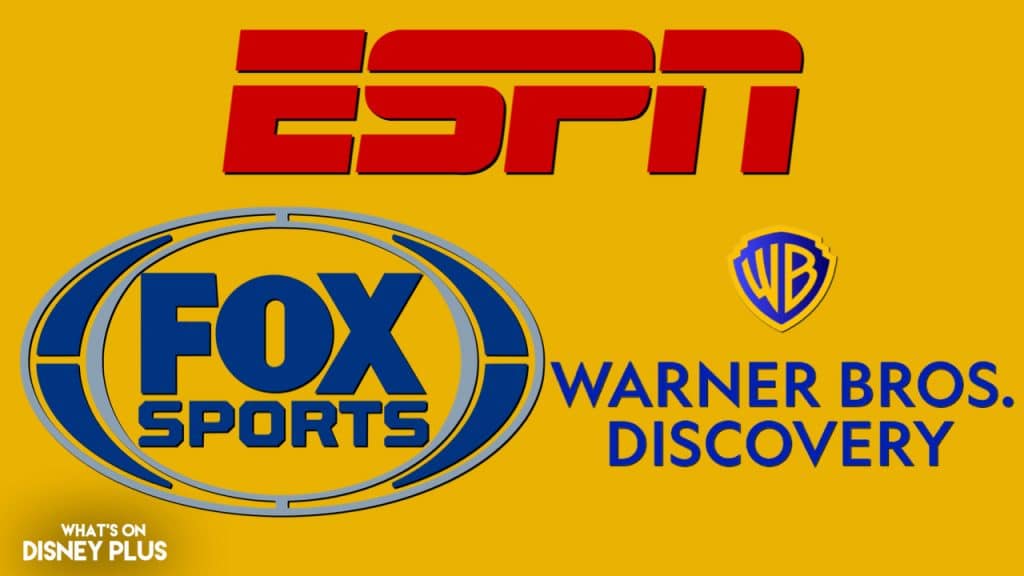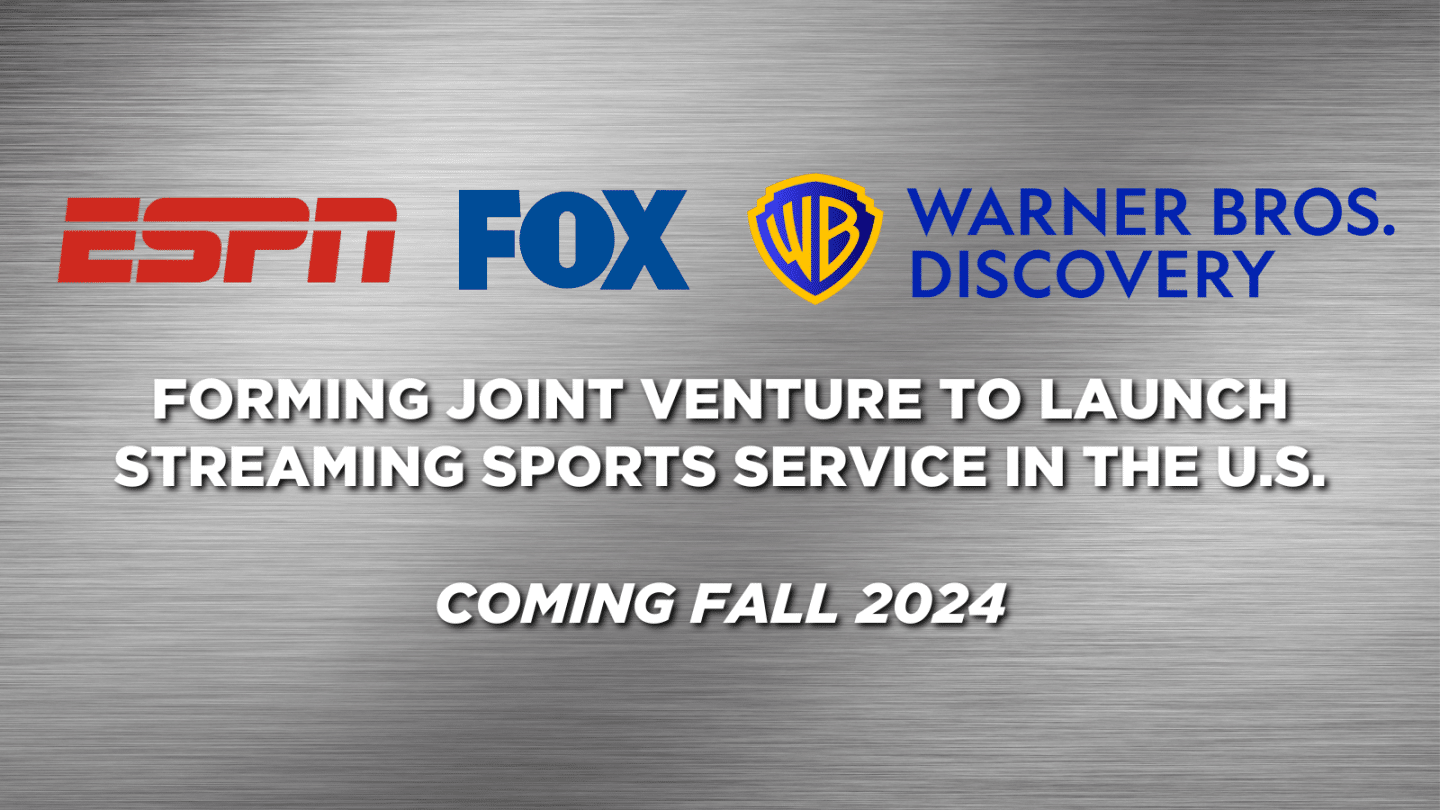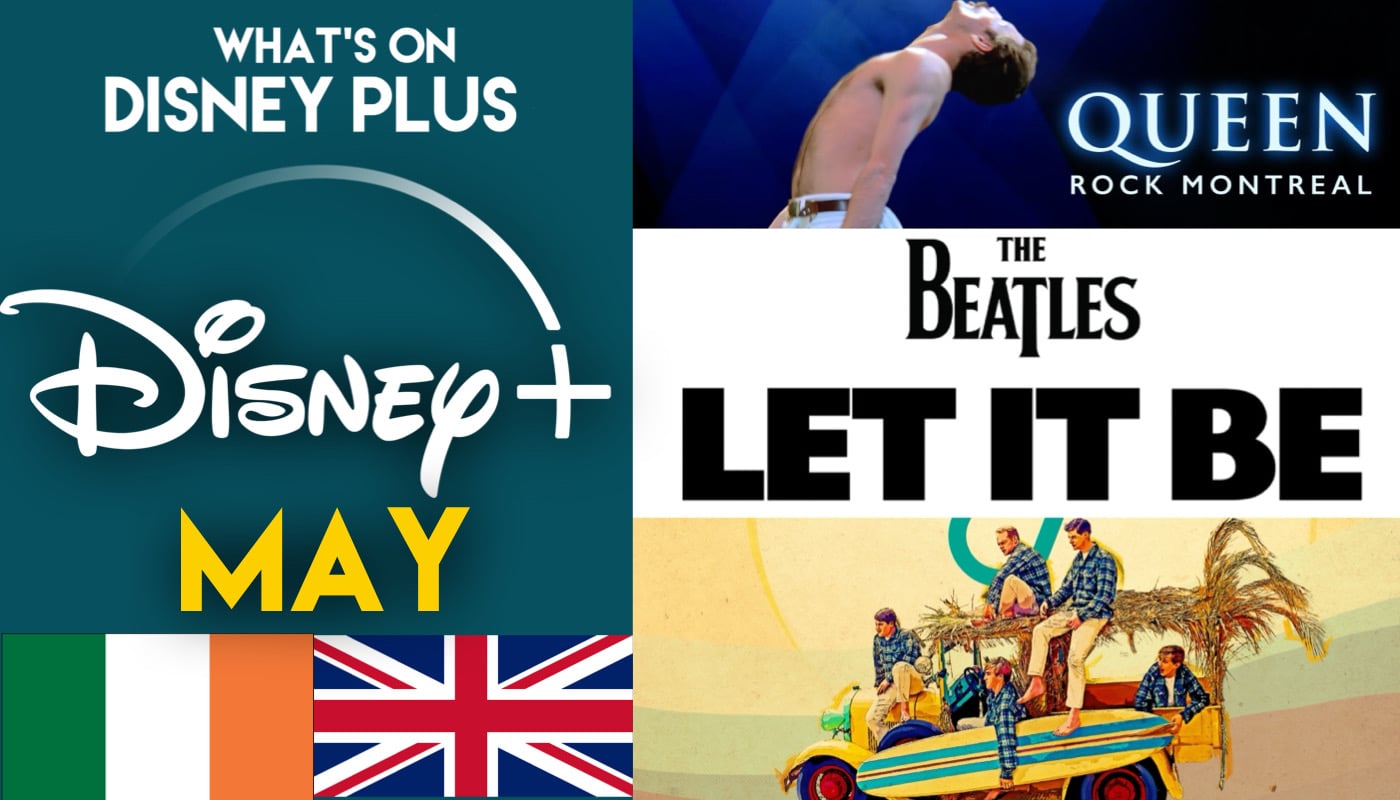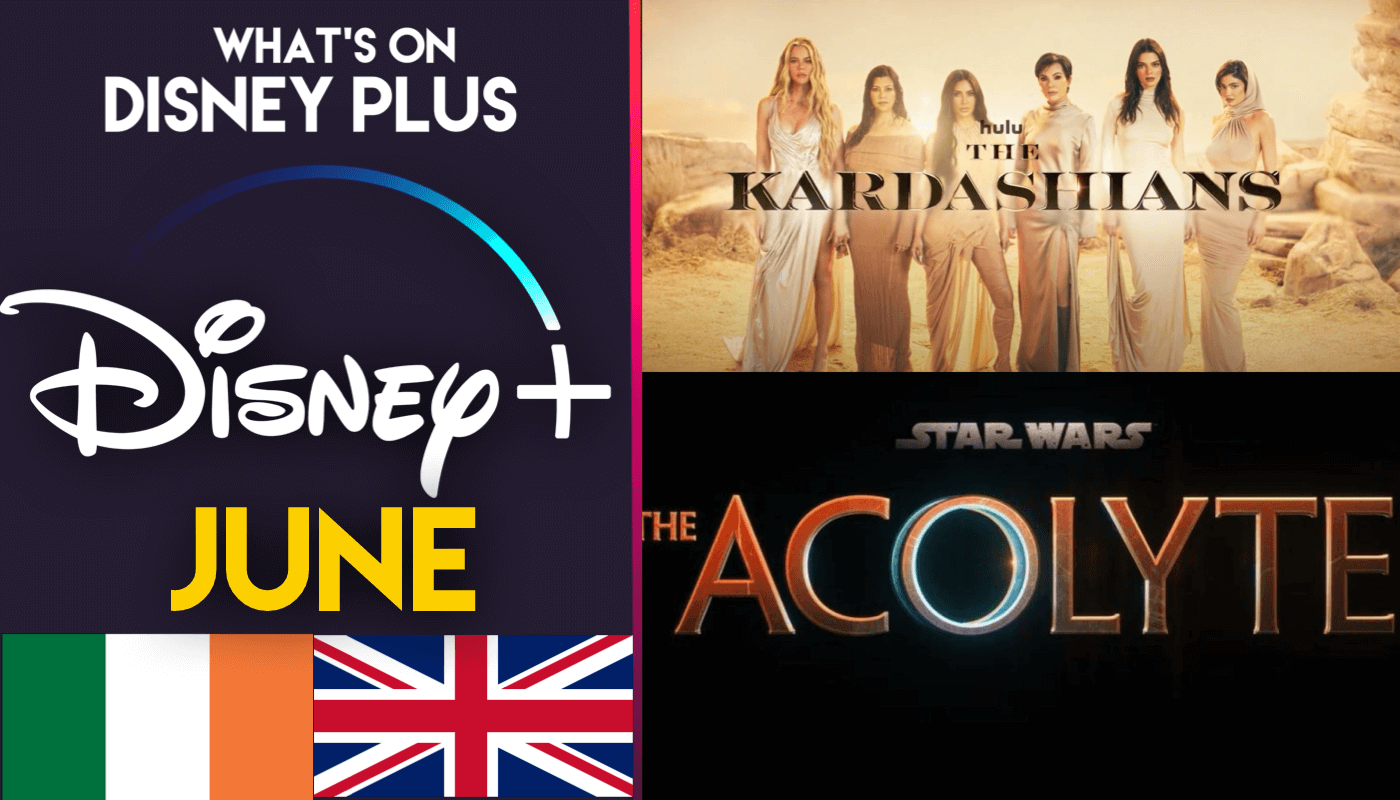
Congressmen Want Answers About New ESPN/Fox/WBD Sports Streaming Service
Earlier this year, Disney made a major announcement for a brand new untitled sports streaming service, where ESPN would be teaming up with FOX and Warner Brothers Discovery to offer a bundle of the companies’ portfolios of sports networks and sports services – including content from all the major professional sports leagues and college sports.
The platform will aggregate content to offer fans an extensive, dynamic lineup of sports content, aiming to provide a new and differentiated experience to serve sports fans, particularly those outside of the traditional pay TV bundle.
The new platform would give fans access to linear sports networks, including ESPN, ESPN2, ESPNU, SECN, ACCN, ESPNEWS, ABC, FOX, FS1, FS2, BTN, TNT, TBS, truTV, as well as ESPN+.
This new sports streaming offering is currently scheduled to launch in the fall of 2024 and will be made available directly to consumers via a new app. Subscribers would also have the ability to bundle the product, including with Disney+, Hulu and/or Max.
However, the launch of the new sports streaming service is subject to the negotiation of definitive agreements amongst the parties, and this new platform has already run into some legal issues, as Fubo TV has filed a lawsuit to try to delay or stop the launch of the platform.
The new sports streaming service has caught the attention of two Congressman, Rep. Jerry Nadler (D-NY) and Rep. Joaquin Castro (D-TX), who have sent a letter to Disney, Fox, and Warner Bros Discovery asking questions about the service.
Dear Mr. Iger, Mr. Murdoch, and Mr. Zaslav:
We write to request information about the proposed sports streaming joint venture (“the Joint Venture”) your companies announced in February.
While streaming has transformed the way Americans access most media content over the past decade, the live sports distribution space has remained relatively static. Still, live sports events including the Super Bowl and the NCAA’s March Madness tournament accounted for 97 of the top 100 most-watched TV broadcasts in 2023. In a recent CNBC appearance, The Walt Disney Company’s CFO, Hugh Johnson, stated that your companies collectively control 80 percent of this content market.
As programmers, your companies exert tremendous influence over pricing across the live sports TV ecosystem. Upstream, programmers negotiate content licensing deals with sports leagues like the National Football League and the National Basketball Association for the media rights to their sports events. Downstream, programmers determine the terms on which video distributors may license programmers’ sports channels. Historically, distributors have primarily been multi- channel video programming distributors (“MVPDs”), such as the cable and satellite television companies Comcast, DISH, and DirecTV. In the era of streaming, distributors have expanded to include virtual multi-channel video programming distributors (“virtual MVPDs” or “vMVPDs”) that provide services over the internet, such as YouTubeTV, fuboTV, and Sling.
As a result, the Joint Venture raises questions about how this new offering would affect access, competition, and choice in the sports streaming market. Without more complete information about the pricing, intent, and organization of this new venture, we are concerned that this consolidation will result in higher prices for consumers and less fair licensing terms for upstream sports leagues and downstream video distributors.
To improve our understanding of the Joint Venture, we respectfully request answers to the following questions by April 30, 2024. Please copy the Department of Justice in your response.
1. What are the relevant markets impacted by the Joint Venture?
2. How many subscribers is the Joint Venture projected to have within 1, 3, and 5 years of launch?
3. Will the Joint Venture distribute channels of non-joint venture partners?
4. How will the Joint Venture Partners determine the pricing of their own sports channels (e.g., Fox Sports, ESPN) included in the Joint Venture?
5. How do those prices compare to prices at which such channels are currently licensed to third-party MVPDs or virtual MVPDs?
6. Will the Joint Venture Partners implement provisions to prevent anti-competitive sharing of pricing or other competitively sensitive information among each other?
7. What measures will the Joint Venture Partners implement to prevent interlocking directorates?
8. When will the pricing of the Joint Venture be determined and announced?
9. What League Properties does each Joint Venture Partner currently hold the rights to, where “League Property” means a content licensing agreement with any of the following: the NFL, the NBA, the MLB, the NHL, the NCAA Basketball Tournament, NCAA Football (by major league) and NCAA Basketball (Men’s and Women’s). What League Properties to licensors other than the Joint Venture Partners hold the rights to?
10. For each of the sports channels that will be included in the new service, how many hours of live events for League Properties does the channel transmit per calendar year?
11. To what extent will customers be offered opportunities to bundle other products offered by the Joint Venture partners with the Joint Venture? Will Joint Venture customers be offered the opportunity to bundle the Joint Venture with direct-to-consumer products of third parties?
12. Will the Joint Venture Partners offer stand-alone streaming sports services? If the Joint Venture Partners decide to offer independent offerings from the Joint Venture, how will firewalls be implemented to ensure there is no collusion between the Joint Venture and their independent streaming sports offers?
13. The Joint Venture Partners currently bid against each other for sports content. However, the new venture will be pooling sports content among the Joint Venture Partners. Will the Joint Venture Partners continue to bid competitively against one another for sports rights as they become available?
14. Will the Joint Venture Partners make the channels they include in the Joint Venture available to third parties on non-discriminatory terms?
15. Will the Joint Venture partners negotiate jointly with MVPDs to license sports channels? Also, with virtual MVPDs?
16. Will the Joint Venture Partners continue to require that MVPDs and virtual MVPDs purchase other programming in addition to their sports channels as a condition of their licensing agreements? Will the Joint Venture Partners continue to require penetration minimums for their sports and other channels when negotiating with MVPDs and other virtual MVPDs?
17. The companies propose to engage in a form of vertical integration, leveraging their content assets into a virtual MVPD. In previous transactions involving vertical integration between programmers and MVPDs (e.g., Comcast-NCBU, AT&T-Time Warner), the parties made certain commitments to submit licensing negotiations to binding
arbitration. Will joint venture partners make similar commitments?18. Prior to negotiation of the Joint Venture, what standalone plans had each of the Joint Venture Partners considered for making their sports channels available via streaming, including but not limited the launch of a new virtual MVPD or inclusion in the Joint Venture Partner’s existing streaming service (e.g., Disney+ or MAX).
19. Do you anticipate the joint venture will be required to make a filing with the Department of Justice and Federal Trade Commission under the Hart-Scott-Rodino Act?
Thank you for your attention to this matter, and we look forward to your answers to these questions.
There is little doubt that the launch of this new sports streaming service could potentially be impacted by some legal issues, especially the anti-competitive nature of the questions, which is one reason why Disney is continuing with its plans to launch its own direct-to-consumer version of ESPN in 2025, which will also be available within Disney+ as an add-on.
One of the other issues with the upcoming sports streaming service is that neither Paramount nor NBCUniversal is involved in the project. This means some sports coverage won’t be available, though that content is available to stream via Paramount+ and Peacock. Also, Netflix and Amazon Prime Video are getting in on live sports programming.
Do you think the new combined sports streaming service will get launched? Let us know on social media!




